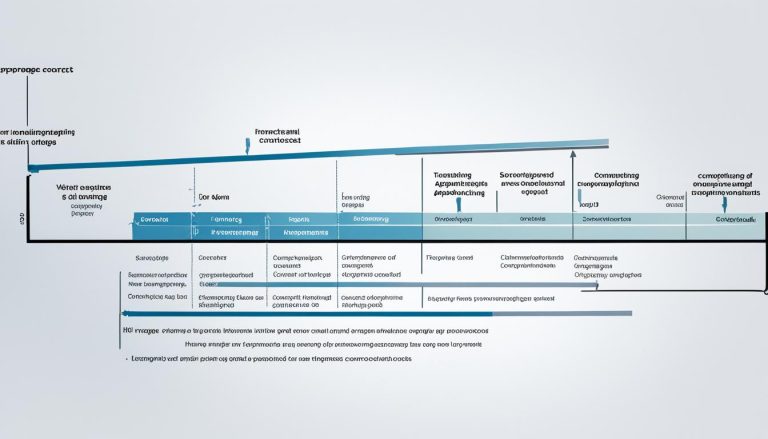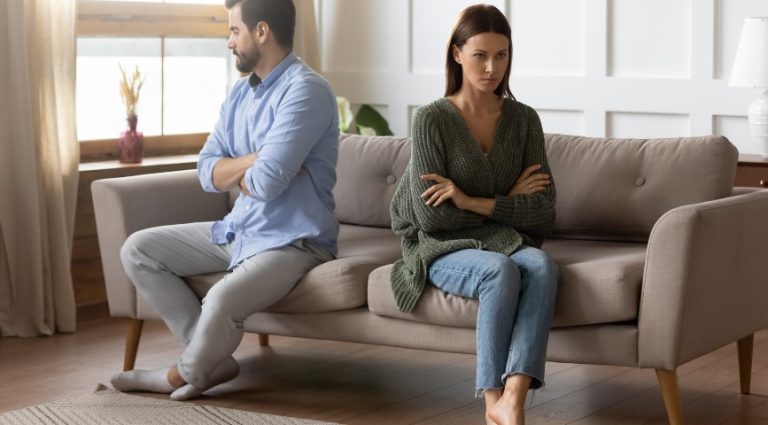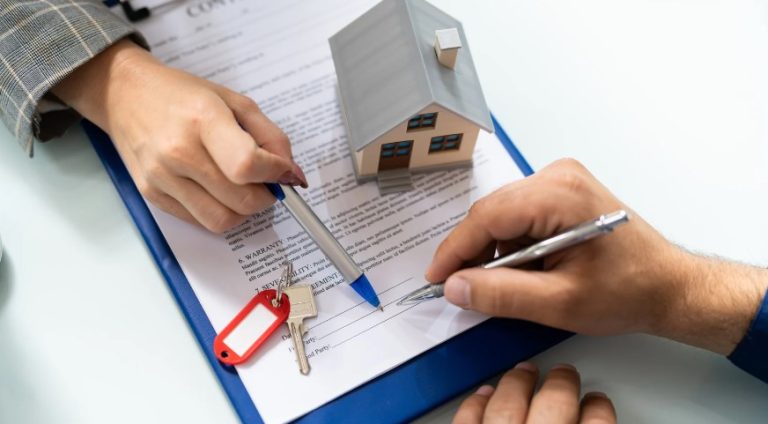Owning a second home, like a holiday cottage or a vacation property, means you need special insurance. This type of insurance is for your second home and covers it during holidays or when it’s not your main home. It’s made to handle the risks of having a home away from your main one.
Your second home needs the same care as your main home. So, think about getting both buildings insurance for the property and contents insurance for what’s inside. You might also need extra coverage if the property is empty for a long time or if you rent it out.
What is Second Home Insurance?
Second home insurance is for properties you own but don’t live in full-time. These might be for holidays, as a vacation spot, or rented out. It’s different from regular home insurance because it understands the special risks of these properties.
One big difference is how it handles empty homes. Regular insurers often don’t cover homes left unoccupied for over 30 or 60 days. But, second home insurers might let you leave your property empty for longer.
Second home insurance also offers more coverage than standard policies. For instance, it might include up to £1,000,000 for the building itself. And, it could offer up to £5,000,000 for liability if you rent it out.
These homes are more at risk of theft, vandalism, and water leak damage from burst pipes. So, second home insurance often covers these risks better. It includes ‘trace and access’ to find and fix water leaks.
| Key Considerations for Second Home Insurance | Details |
|---|---|
| Unoccupied Periods | Specialist insurers may allow longer unoccupied periods compared to standard home insurers |
| Buildings Cover | Up to £1,000,000 of buildings cover is often included as standard |
| Liability Coverage | Property Owners Liability can reach £5,000,000 for let properties |
| Additional Risks | Higher risks of theft, vandalism, and water damage require increased levels of cover |
In summary, second home insurance offers special coverage for homes not used as your main residence. It deals with the unique risks and needs of holiday homes, investment properties, and other secondary dwellings.
Understanding the Need for Second Home Insurance
Owning a second home can be thrilling, whether it’s for holidays, work, or as an investment. But, the insurance for a second home is different from your main home. You need special insurance for a second property because standard policies might not cover all the risks.
Different Types of Second Homes
People have second homes for many reasons. It could be for holidays, work, or to hold until sold. Each type of second home needs its own insurance to make sure it’s fully protected.
Why Standard Home Insurance May Not Suffice
Don’t think a standard home insurance policy will do for your second home. These policies often have a 30-day limit on leaving a house empty. If your second home is not always lived in, you need different insurance.
Getting a policy just for your second home is key to protecting your investment. It could be for holidays, renting out, or work. Knowing what your second home needs ensures it’s safe from many risks.

What Does Second Home Insurance Cover?
Insuring your second home covers two main areas: buildings and contents insurance. These policies protect your holiday or investment property fully.
Buildings Insurance for Second Homes
Second home buildings insurance covers the structure of your property. This includes walls, windows, and outbuildings like garages and swimming pools. It also covers walls, gates, and fences. If your property suffers damage from fire, storm, flood, burst pipes, or subsidence, this cover helps with repair or rebuilding costs.
Contents Insurance for Second Homes
Contents insurance for second homes protects your personal items. This includes furniture, furnishings, and appliances. Your belongings are covered against theft or damage from fire, storm, flood, and burst pipes.
Remember, second home insurance might offer less cover if your property is empty for over 30-60 days. It’s wise to check your property regularly, keep it warm, and secure all entry points. This helps reduce risks when you’re not there.
A good second home insurance policy gives you peace of mind and financial security for your holiday home or investment property.

Additional Coverage Options to Consider
When insuring your second home, think about extra coverage options. These can offer valuable protection and peace of mind. They help safeguard your investment and prepare you for potential issues.
Home Emergency Cover
Home emergency cover is a good idea for your second home insurance. It covers emergency repairs, like if a pipe bursts or there’s a wasp infestation. This way, you can fix problems quickly, reducing damage or disruption to your holiday home.
Public Liability Cover
Public liability cover is key for your secondary residence. It protects you if someone gets hurt at your property, like tripping on a loose floorboard. This insurance covers compensation claims and legal fees, so you’re not left out of pocket.
Remember, insurance add-ons cost extra. So, it’s important to think about the benefits and the extra cost. Sometimes, a comprehensive policy that includes these elements might be cheaper than buying them separately.

Why is Second Home Insurance Different From Regular Home Insurance?
Insuring your second home requires different coverage than your main home. Standard insurance covers the basics, but a second property has unique risks. These need a special insurance plan.
One big difference is how often the property is used. Regular insurance assumes it’s lived in most of the year. But a second home might be empty for long times, raising risks like vandalism and water damage. Insurers might ask for more checks to lower these risks.
How you use your second home also changes insurance needs. If you rent it out or use it for holidays, you might need special insurance. This is because the risks and what you need from insurance are different from a home you live in.
Security levels can also differ. Insurers might want better locks and security for an empty home. This helps protect against theft and damage.
| Factor | Regular Home Insurance | Second Home Insurance |
|---|---|---|
| Occupancy | Primarily occupied | Potentially vacant for extended periods |
| Use | Owner-occupied | May be rented out or used as a holiday home |
| Security | Standard locks and security measures | Potentially higher security requirements (e.g., enhanced locks) |
| Risks | Typical household risks | Increased risks due to vacancy and usage (e.g., water damage, theft, vandalism) |
| Policy Features | Baseline home insurance coverage | Specialised features (e.g., loss of rent, alternative accommodation) |
Second home insurance is different from regular home insurance in many ways. These include how often the property is used, how it’s used, security needs, and the risks it faces. Policies made for these unique factors are key to fully protect your second home.

Factors to Consider When Buying Second Home Insurance
Buying insurance for your second home needs careful thought. You must look at occupancy times and coverage levels. Choosing the right policy is key to protecting your holiday home or investment.
Occupancy Periods and Unoccupied Home Cover
How often and for how long you use your second home matters. Some insurers say a second home is used at least once every two weeks. If your holiday home is empty for a long time, you’ll need special insurance for risks like theft and damage from the weather.
Most home insurance policies don’t cover empty homes for more than 30 days. If your home is empty for longer, your insurance might not pay for claims. Make sure you pick a policy that fits your use of the property.
Determining the Right Level of Cover
It’s important to figure out how much insurance you need for your second home. Think about how much it would cost to rebuild your property and what your belongings are worth. You might also want to add extra cover for emergencies, liability, and your personal items.
Some insurers offer discounts if you add a second property to your policy. This can help keep insurance costs down. Look around to find the best deal for your second home insurance.

Second home insurance can be complex, but knowing what affects coverage and costs helps you make a good choice. Think about how often you’ll use the property, what you need to cover, and the policy options. This way, you can protect your holiday home or investment, ensuring peace of mind and financial security.
Finding the Right Second Home Insurance Policy
Choosing the right second home insurance policy is key to protecting your investment. There are several important factors to think about when looking for the best coverage.
Comparing Policies and Providers
Start by looking at what your current home insurer offers. Many insurers give discounts for adding a second property to your policy. This can save you money. But, it’s also a good idea to compare policies from different insurers to make sure you’re getting the best deal.
Some top insurers for second homes in the UK include Pikl. They specialise in covering holiday homes and investment properties. These insurers offer policies that are tailored to your needs. They include features like:
- Up to £10,000 contents cover for damage to personal belongings of friends or employees
- Outdoor items coverage up to £25,000
- Escape of water or flood claims over £20,000, with up to £2,500 for preventative measures
- Home emergency assistance and legal protection, provided the first home is insured with the same provider
- No additional fees for insuring a second home compared to a primary residence
Determining the Appropriate Level of Cover
When picking a second home insurance policy, it’s important to choose the right level of cover. You need to think about how often you’ll use the property, the value of your contents, and any risks you might face.
If you plan to rent out your second home, you’ll need extra coverage for public liability and landlord insurance. If the property will be empty for a long time, make sure your policy covers unoccupied homes. These properties can be more at risk of water damage or burglary.
By looking at your second home’s specific needs and comparing policies from trusted providers, you can find the right insurance. This will help protect your investment and give you peace of mind.
Conclusion
Second home insurance is crucial for those with a property besides their main home. It covers the structure, contents, and liability of your holiday home, rental, or other secondary property. Knowing the specific needs and risks of your second home ensures you get the right protection.
It’s important to compare different policies and consider extra coverage you might need. Working with an insurer that specialises in second home insurance helps you find the best policy for your situation. This insurance can protect your investment, reduce damage risks, and give you peace of mind about your holiday or investment property.
This article highlights the need for regular checks on your property, liability cover, and the advantages of smart home tech and security systems. With the right insurance, you can enjoy your second home safely, knowing you’re financially secure.
FAQ
Why might I need a second home insurance policy?
You might need second home insurance if you rent out a property, have a holiday home, or use a property for work while away. It covers these unique situations.
How do I find the right second home insurance policy?
Look at how often you’ll use the property, what you need to insure, and any extra cover you want. Compare different policies to find one that suits your needs and budget.
Do I need a separate policy for my second home, or can I add it to my existing home insurance?
You might add your second home to your current policy, which could save money. But, make sure your second home is fully covered by checking with your insurer.






